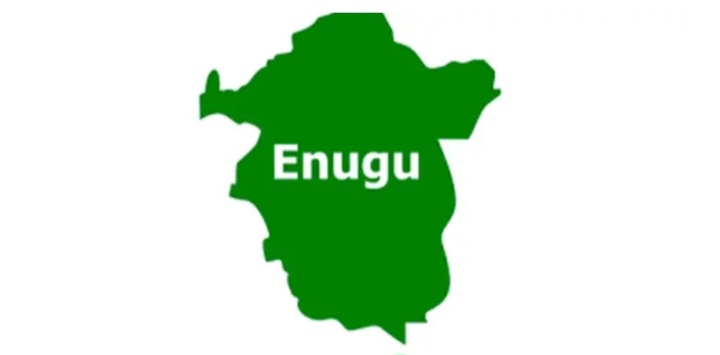Governor of Enugu State, Dr. Peter Mbah, has transmitted an Executive Bill to the Enugu State House of Assembly to checkmate criminal activities among native doctors, herbalists and related persons in the state.
The proposed legislation entitled “Maintenance of Internal Security, Vigilance and Order”, also outlaws money rituals otherwise known as ‘okite’, criminal bulletproof charms, otherwise known as ‘odeshi.’
It equally outlaws illegal use or occupation of forests and property for criminal activities.
By the provisions of Section 3 (1), “Every person, who engages in the practice or rendering of spiritual services within the state, whether as a native doctor, herbalist, spiritualist, chief priest, diviner, seer, or by any other traditional or spiritual title or designation, shall be registered with the ministry, department or agency (MDA) of the state as may be designated by the Governor for that purpose.”
Practising without registration will attract a fine of not less than N1 million and not more than N5 million or two-year imprisonment or both.
Section 15 of the proposed legislation provides, “Any person who, under the guise of spiritual or traditional practice (including but not limited to the practices commonly referred to as ‘okite’, ‘ezenwanyi’, or any other mystical or ritual name/form) administers or causes to be administered any charm, substance, or object on or for another person, for the purpose of: (a) invincibility and other forms of protection to facilitate the commission of any criminal offence; or (b) acquiring wealth or benefits by supernatural means outside any lawful means of livelihood, commits an offence and is liable on conviction to imprisonment for a term of six (6) years or to a fine of not less than five million naira (N5,000,000), or both.
“Any person, who falsely claims to possess supernatural powers or misleads the public into believing so, for the purpose of gaining reward, or influence (whether financially or otherwise) commits an offence and shall be liable on conviction to imprisonment for a term of three (3) years or to a fine of not less than three million naira (N3,000,000), or both.”
It further provides that where a person claims spiritual powers under this law, “the burden shall lie on such a person, during investigation, to provide reasonable proof of the purported supernatural abilities claimed.”
In the same vein, Section 16 prescribes six years of imprisonment or a fine of N5 million or both against anyone, who uses or knowingly permits the use of any religious place, for the commission or facilitation of a crime, in addition to sealing of the facility pending the outcome of investigation.
Section 17 stipulates that “Any person who performs, facilitates, demands, directs, or participates in any ritual or traditional practice involving the use of human parts, or who causes another person to do so, commits an offence and shall be liable on conviction to imprisonment for a term of twenty (20) years without the option of a fine.”
Under Section 13, “Any person found in a camp, bush, or forest within Enugu State without any reasonable or lawful cause, and under circumstances giving rise to reasonable suspicion of involvement in any criminal activity, shall be promptly handed over to the Nigeria Police Force or any competent security agency for proper investigation in accordance with the law.”
On the use of forests and property for banditry and kidnapping, the Bill proposes, “Any person who owns, occupies, or has control over any land or building, whether located in a forest or elsewhere, and knowingly allows it to be used as a camp, hideout, or base for kidnapping, the unlawful detention of victims, the collection of ransom, or for any other activity connected to kidnapping or banditry, commits an offence and is liable on conviction to imprisonment for a term of twenty (20) years without the option of a fine.”
Also, any person, who knowingly allows any person, who is not a member of the nation’s security agencies to reside, camp, or establish any form of settlement on his or her land, except for farming, is liable on conviction to two-year imprisonment without an option of fine.
Any person who knowingly fails to report suspicious use of their property, and fails to report the same to the security agencies “commits an offence and shall be liable on conviction to imprisonment for a term of two (2) years without the option of a fine.”
“Subject to the provisions of Section 3 of the Criminal Code (Second Amendment) Law 2016, any land, property, or structure used in contravention of Sections 7, 8, 9 and 10 of this Law shall be forfeited to the Government of Enugu State,” the Bill further provides.
Again, money, property, and other proceeds of theft, robbery, kidnapping, among others are to be forfeited to the Enugu State Government, unless a lawful and verifiable owner claims it within a reasonable time.
The Bill equally makes it mandatory for private security outfits to register with the State Government, providing the particulars of the outfit and all armed security operatives employed or deployed by them, while all presidents-general of town unions are to submit security reports to local government council chairmen or any other department designated by the government not later than the first week of every new month.
In the same vein, landlords and proprietors of hotels, guest houses, and estate associations are demanded by the Bill to obtain and transmit valid means of identification, phone number, occupation, and place of work of their prospective tenants and guests to the relevant authority.
Proprietors of hotels and other lodging facilities shall install a surveillance camera within public areas to record and submit records of activities to relevant authorities.
Penalties for contravention of this provision range from a fine of not less than N500,000 for landlords to N1 million.





